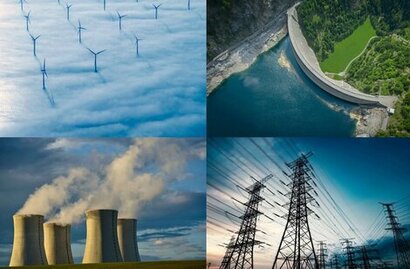
Europe is decarbonising its economy with clean and renewable power set to meet 60 percent of final energy use by 2050. However, cables in the Baltic Sea are being repeatedly sabotaged, devastating storms are leaving Ireland in the dark, war is raging in Ukraine and price shocks are being caused by Russia’s fuel disruptions. Amid all this, a new study commissioned by Eurelectric emphasises the need to reduce fuel imports dependence, lower exposure to commodities price shocks and boost crises resilience.
The EU’s current energy security strategy was adopted in 2014, at a time when countries relied heavily on Russian imports and renewables made up only a small fraction of the overall mix. However, this picture has now fundamentally changed. Energy imports are expected to decrease from 60 percent of EU energy supply in 2022 to 13 percent by 2050, thanks to transport and heating electrification. Renewables are set to generate 69 percent of total power by 2030 and Russian oil and gas will be gradually phased out. These developments call for an integrated power-led security approach.
“The recent year has shown us that business-as-usual in Europe is no longer an option” said Eurelectric’s President and E.ON CEO Leonhard Birnbaum. “With the threats faced by our sector, security of supply is becoming an urgent priority that policymakers and regulators must acknowledge.”
To secure Europe’s power supply, the study suggests strengthening three pillars:
Better planning: only by adding the pieces together one can see the full puzzle. Preparedness frameworks should encompass the entire value chain, include all energy vectors, infrastructure, span across longer timeframes and factor in external threats to better identify system needs.
Flexibility: massive flexible capacity will be needed to complement variable renewables – 175 GW should come from new storage technologies and demand side response by 2030. To incentivise investments, capacity mechanisms and flexibility support schemes will be crucial.
Functioning markets: effective price signals should reflect system needs and allow consumers to contribute to security of supply by adjusting their energy use.
“This is not going to be an easy endeavour” added Mr Birnbaum. “Let’s make sure Europe has the right vision for it.”
The study will be formally unveiled at the Munich Security Conference.
For additional information:

